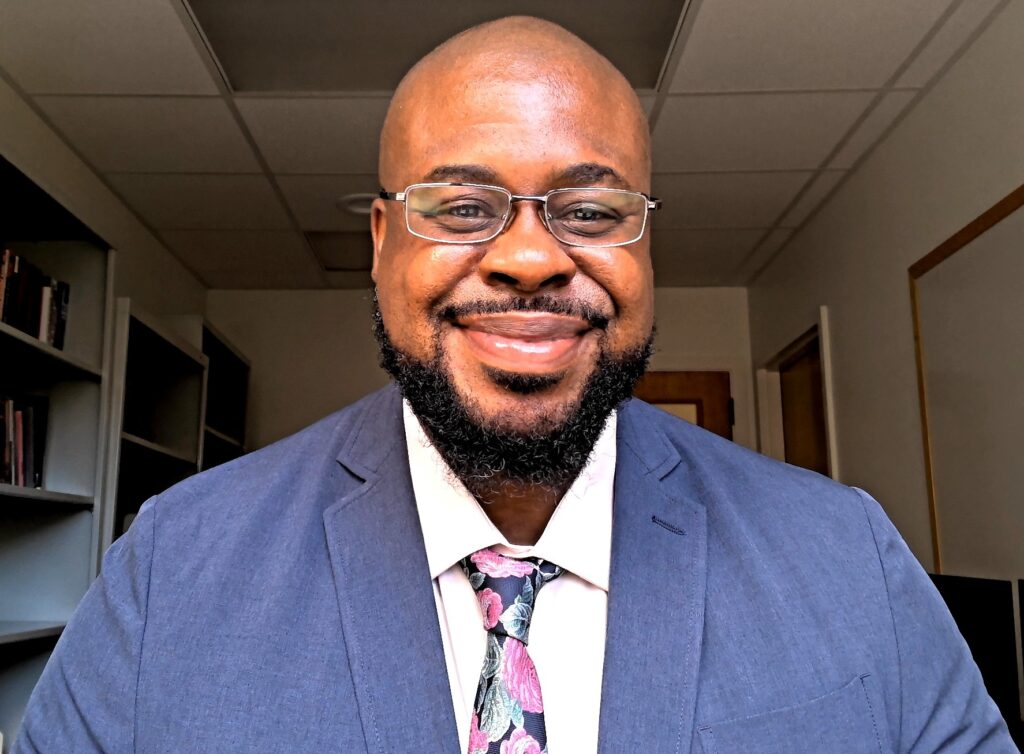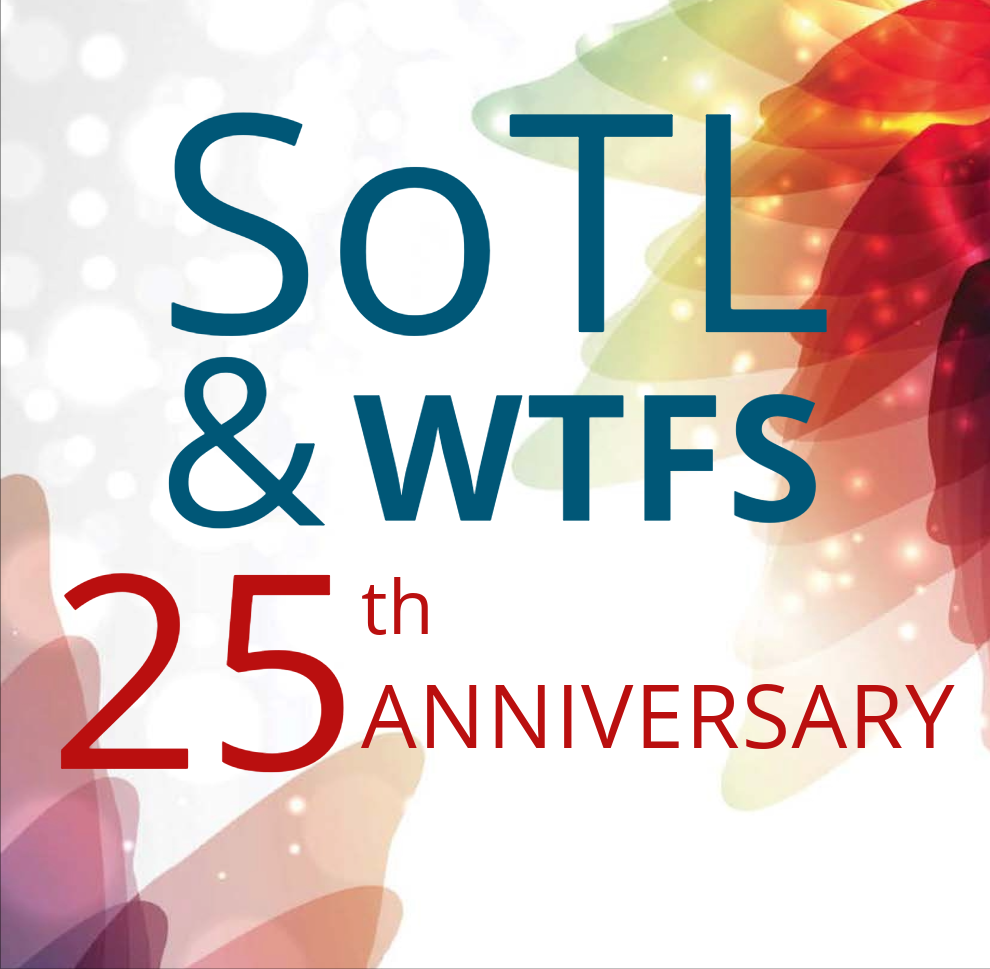Pennsylvania State University
Brown-McCourtney Career Development Professor in the McCourtney Institute and Professor of Political Science and African American Studies
Wisconsin Teaching Fellow (UW-La Crosse), 2011-12
My participation in the Wisconsin Teaching Fellows and Scholars (WTFS) program was a formative experience that profoundly influenced my approach to higher education. The WTFS program, combined with my engagement with the Scholarship of Teaching and Learning (SoTL), provided me with the tools to enhance my pedagogical practices, particularly by integrating a learner-centered approach in my teaching.
Through WTFS, I was introduced to diverse teaching methodologies and the importance of student-centered learning environments. These things became central to my teaching practice, as I aim to facilitate and guide rather than dominate the learning process. This approach aligns with the WTFS’s emphasis on active learning and student engagement, which I have incorporated into my courses by encouraging students to be informed, critical thinkers and active participants in their education.
Moreover, the WFTS program’s focus on SoTL inspired me to continuously reflect upon and improve my teaching methods. My engagement with SoTL led me to explore innovative pedagogical techniques, such as the development of writing-intensive courses that emphasize real-world applications. For example, instead of traditional term papers, students in my classes complete assignments that mirror professional tasks, such as policy memos or legal briefs. This practice not only enhances their learning experience but also prepares them for their future careers, reflecting my belief in the practical application of education.
The WTFS program and my use of SoTL also deeply influenced how I engage with students in their learning processes. One of the key insights I gained from WTFS is the importance of creating an inclusive and supportive learning environment that recognizes and values the diverse backgrounds and perspectives of students. This understanding is reflected in my classroom, where I prioritize diversity and encourage students to explore and share their unique viewpoints.
In line with the principles of SoTL, I have developed a teaching style that is both student-centered and pragmatically focused. My role in the classroom is to guide students through their learning journey, encouraging them to take ownership of their education. This involves fostering an environment where students feel empowered to contribute to discussions and collaborate with their peers. The WTFS program reinforced the idea that learning is a collaborative process, and this has led me to design assignments that promote group work and collective problem-solving, which are essential skills in both academic and real-world settings.
 Furthermore, my SoTL-informed approach emphasizes the importance of authentic assessment, where students are evaluated based on their ability to perform tasks that are directly relevant to their field of study. This method not only makes the learning experience more meaningful but also helps students develop practical skills that will serve them beyond the classroom.
Furthermore, my SoTL-informed approach emphasizes the importance of authentic assessment, where students are evaluated based on their ability to perform tasks that are directly relevant to their field of study. This method not only makes the learning experience more meaningful but also helps students develop practical skills that will serve them beyond the classroom.
As an outgrowth of the teaching workshops I attended as part of the WTFS, several of my colleagues and I in the University of Wisconsin-La Crosse’s Department of Political Science and Public Administration developed a novel approach to teaching writing-intensive courses. This approach inspired us to pursue a joint project in which we added “authentic” (i.e., professionally relevant) writing assignments to our syllabi. For example, instead of writing the typical term paper, students took classes in which they created policy memos to share with state legislators, sent op-ed pieces to the local newspaper, applied for funding, constructed legal briefs, applied for internships, etc. As a result of this collaboration, our department revised the method it used to assess students’ written assignments, and we added a website for our students to use as a writing resource.
This website provides detailed instructions about several types of documents students may need to generate. Examples include coursework-related documents such as a journal article review, an annotated bibliography, and a research proposal. The site also provides details on how to compile professional documents such as a letter to the editor, a resume, and a grant application. For each type of document, students can access step-by-step guides and an example of a completed document. The site thus prepares students for success as writers during their academic careers, in their chosen professions, and in their lives as active, engaged community members. After developing the website, we surveyed students regarding their experiences with the process, and we conducted our own double-blind review of the initial and revised drafts of various writing assignments to assess their quality. Our results show that the quality of writing improved and that students appreciate having such a comprehensive writing resource at their disposal. More importantly, the website became a valuable resource for the entire department: the instructions for each writing assignment were made available on our department’s website, and each instructor included at least one of these assignments in each upper-division class they taught. Because we now have the web-based resource, faculty members in our department are spending less time teaching students how to create these documents and spending more time evaluating the content of the documents.
Biography:
In addition to being the Brown-McCourtney Career Development Professor in the McCourtney Institute for Democracy and Professor of Political Science and African American Studies at Penn State University, Ray Block Jr. (he/him) is the inaugural Michael D. Rich Distinguished Chair for Countering Truth Decay at the RAND Corporation. The chair was established in honor of Rich, RAND’s former president and CEO, who initiated RAND’s Truth Decay work and made it an integral part of RAND’s mission. Block advances the Truth Decay agenda, developing new research streams, and expanding the impact and reach of this research.
Block studies racial, ethnic, and gender group politics, voting behavior, and public opinion in the United States. He is especially interested in how non-dominant demographic groups (e.g., women, racial and ethnic minorities) translate their policy preferences and psychological attachments into political action and with what consequences. Block has extensive experience teaching both substantive and methodological courses and has received several teaching nominations and awards. He is also passionate about civic involvement and has engaged in multiple university-related and public-facing programs that promote a more equitable and inclusive environment for underrepresented groups. Block holds an M.A. and Ph.D. in political science from the Ohio State University, and B.A. degrees in philosophy and political science from Howard University.
Publications:
Block Jr., Ray. Ruth Cronje, and Daniel Henke. “Writing to do Democracy: An Investigation of Political Science Undergraduate Writing Performance.” GER Editorial Board Members (2012): 1.
Clark, Christopher J., Ray Block Jr., Kaneesha Johnson, Michael Minta, and Frank R. Baumgartner. “The Intellectual Benefits of Diversity: How Political Science Suffers from Its Lack of Diversity, and How It Can Do Better.” In Oxford Handbook of Engaged Methodological Pluralism in Political Science, edited by Janet M. Box-Steffensmeier, Dino P. Christenson, and Valeria Sinclair-Chapman. Oxford: Oxford University Press, 2024
Block Jr., Ray. “How My Classroom Became a Laboratory for Countering Truth Decay.” Diverse: Issues in Higher Education, October 22, 2024.
